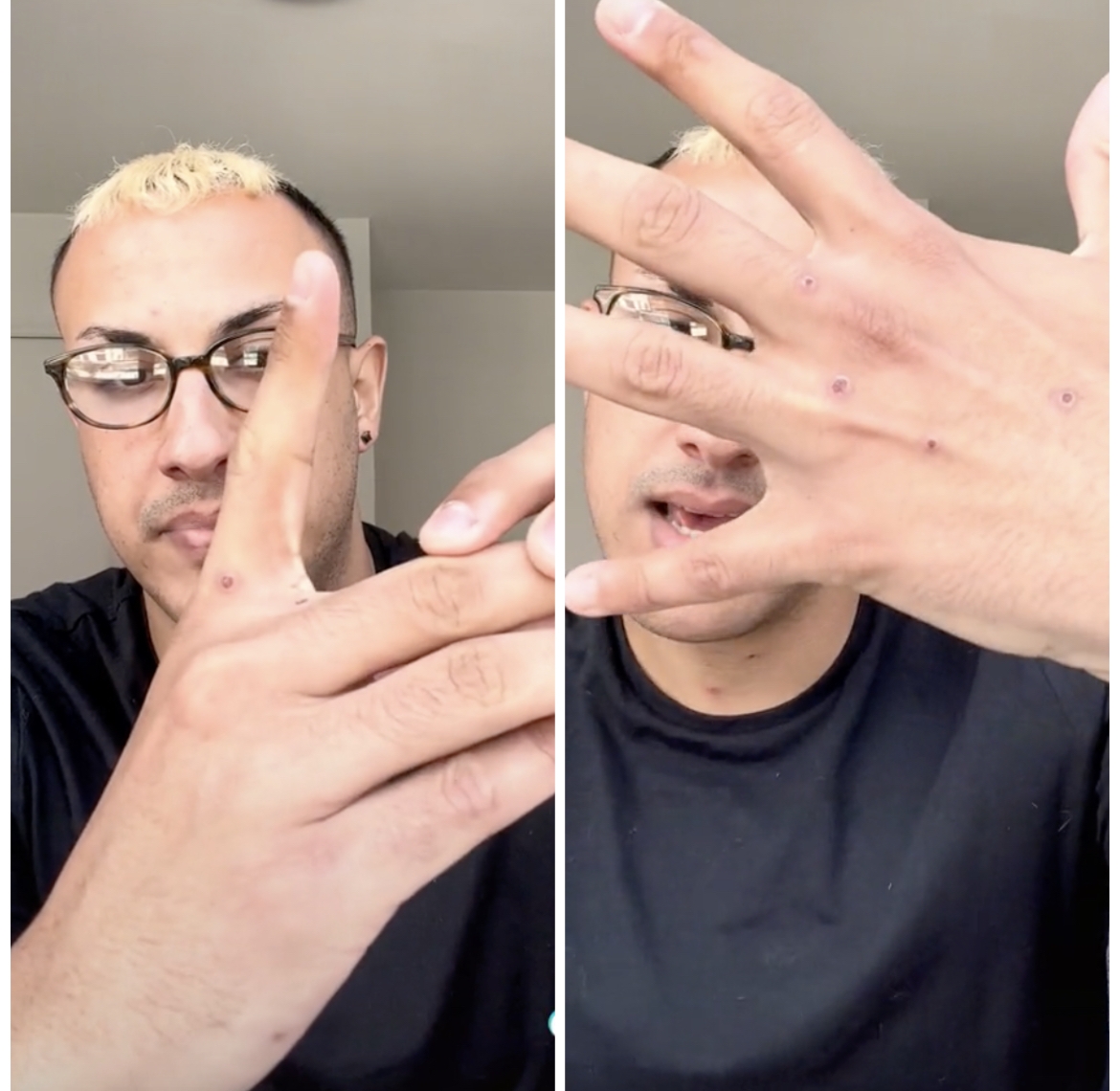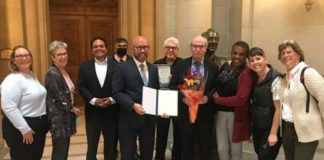Long after the lesions from a monkeypox (MPV) diagnosis have scabbed over and fallen off, the emotional impact of the diagnosis remains. For many gay and bisexual men who acquired MPV at the beginning of the outbreak amidst limited information on transmission, and for men of color, with even less availability to vaccines, returning to a sense of normalcy after recovering can present a new set of challenges.
Gerald Febles, 25, an employee relations manager and New York City transplant, now residing in Orlando, says he struggled to go back outside after he was no longer contagious and could leave quarantine.
“I was triggered. I didn’t want anything to do with going to a crowded bar and seeing people for at least a few weeks,” Febles says. “I didn’t want anything to do with hooking up or sex. I was so traumatized by the thought of being around people because of how painful that experience was.”
In quarantine for three weeks, Febles’ everyday routine came to a screeching halt. His then-roommate, out of an abundance of caution and early uncertainty about transmission, left for upstate New York, leaving him alone in isolation.
“It was the middle of summer, and I was in the most excruciating pain,” he says. I felt ugly. I didn’t feel good. Everything hurt.”
Febles’ MPV diagnosis in late June was not a part of his summer plans. However, a trip with friends to Fire Island, and later New York City Pride, was. Febles believes he was exposed through sexual contact to MPV during one of the two events.
“I couldn’t tell you who it was because no one I was in any sort of sexual contact with had any visible signs of [MPV],” he says. “If they had something on their body that was weird or concerning, I would’ve stopped and asked, but there was nothing that seemed abnormal.”
Febles tells GLAAD that it was difficult to be safe or avoid a virus with evolving public info about transmission around the time of his diagnosis. A mark between his fingers shortly after New York City Pride signaled the beginning of his journey with MPV.
“It looked like a mosquito bite,” he says. “But I didn’t remember getting bit at all. And it was itchy and burning. Fast forward nine hours later, another small one appeared next to it,” he adds.
Still unconvinced the perceived mosquito bites were MPV lesions, Febles says it wasn’t until the following day that he knew he needed to seek medical attention.
“The next day, I woke up and had the same bumps on my neck and feet,” he says.

At the recommendation of a co-worker, Febles says he spent the next eight hours at a hospital on Manhattan’s Upper East Side.
“That was the worst experience of my life, he says. “I was sent home with nothing, and the next day I woke up and had more [lesions].”
Soon after, Febles began sharing his experience with MPV on Tik Tok. His videos caught the attention of the Columbia University Department of Medicine Division of Infectious Disease. Febles tells GLAAD that doctors immediately enrolled him in an investigational study for MPV treatment.
“I got in an Uber, got to the hospital, and was seen by the doctor the same day,” Febles says. “He gave me medication right then and there.”
Unlike his first hospital experience, Febles went home with a two-week supply of TPOXX, the antiviral drug prescribed to manage MPV symptoms.
Quarantine revelations
Down south, in Stone Mountain, GA, Dunstan Peoples, 39, wasn’t as fortunate as Febles to have access to TPOXX to help manage his MPV symptoms. The shock of his diagnosis and subsequent quarantine left the sales manager despondent.
“I just felt so many things at the time,” Peoples says. “I didn’t know if I was going to make it, honestly. Monkeypox was fairly new to everyone. And at that point, I just felt that everything was going to be over for me.”
Peoples says he noticed a small lesion on his lip the day he received his first dose of the MPV vaccine but dismissed it as nothing more than a cold sore. It wasn’t until his lymph nodes began to swell and a lesion appeared in his genital area that he made trips to urgent care and the emergency room.
“When I left [the emergency room] that Sunday night, I started feeling more symptoms; aches, chills, fatigue, nausea, dizziness, headaches,” he says. “Then there was the lesion in my mouth, which was difficult because it started burning really bad.”
Peoples tells GLAAD he made three visits to the emergency room only to be provided with no relief from his MPV symptoms.
“They didn’t provide me with any antibiotics or painkillers or anything that could help with the symptoms,” he says. “At that point, they were running tests on TPOXX. So they couldn’t prescribe that to me. I had to tough it out.”
Despite the stigma attached to MPV, in August, Peoples took to Facebook Live to raise awareness about the spread of MPV among Black gay and bisexual men and to share his diagnosis. He believed he was exposed to MPV during close contact at a card party; he later learned differently.
“This guy reached out and said he wanted to inform me that he was recovering from monkeypox, and I realized not even a week prior to me getting the lesion on my mouth, he and I were intimate,” Peoples says. “We did not have sexual intercourse. We kissed. And I think that’s how I came in contact with monkeypox,” he adds.
For the next four weeks, Peoples remained in quarantine, unable to work. MPV was becoming a health and financial disruptor.
“I didn’t have FMLA. I didn’t have time to take off. I wasn’t making any income because I didn’t have the time available,” he says.
Thankfully, an advocate assigned to Peoples by the Dekalb County Board of Health to provide financial resources during recovery was the safety net he needed. And unlike others diagnosed with MPV, Peoples’ was never in danger of losing employment.
“They secured my job for me,” he says. “They [his employer] told me to take as much time as I needed. And they reached out to me a few times to make sure that I was okay. So that was something that I appreciated.”
Peoples and Febles say their chosen queer families were instrumental in helping them survive the most challenging days of their isolation.
“My friends in the community were a huge support system,” Peoples says. “They helped me through this process because it was a lot.”
“I have an amazing friend group in New York,” says Febles. “I have tons of drag queen friends, nightlife performers, and regular friends that, at random times of the day, would stop by my house and leave stuff in front of my door. And then once they left, they would text me and say, ‘Okay, open your door.’ They would leave me everything from books to groceries,” he says.
Although both men have fully recovered and rejoined society, Peoples and Febles won’t soon forget the revelations they experienced in quarantine.
“When Covid was happening, and affecting everyone, including white people, there were resources,” Febles says. “There was food sent to your house. There were stipends from the government. When monkeypox came around, predominantly affecting gay people and people of color, it was silence, crickets, nothing,” he says.
“There are so many things that are important to me. My health and my family are things I value more than I did before,” Peoples says. “I don’t take those things for granted at this point.”









